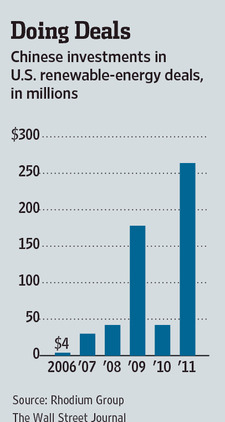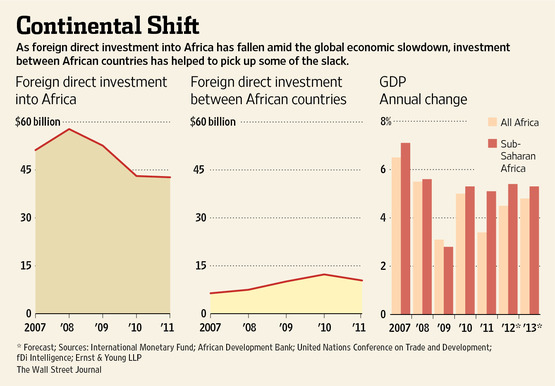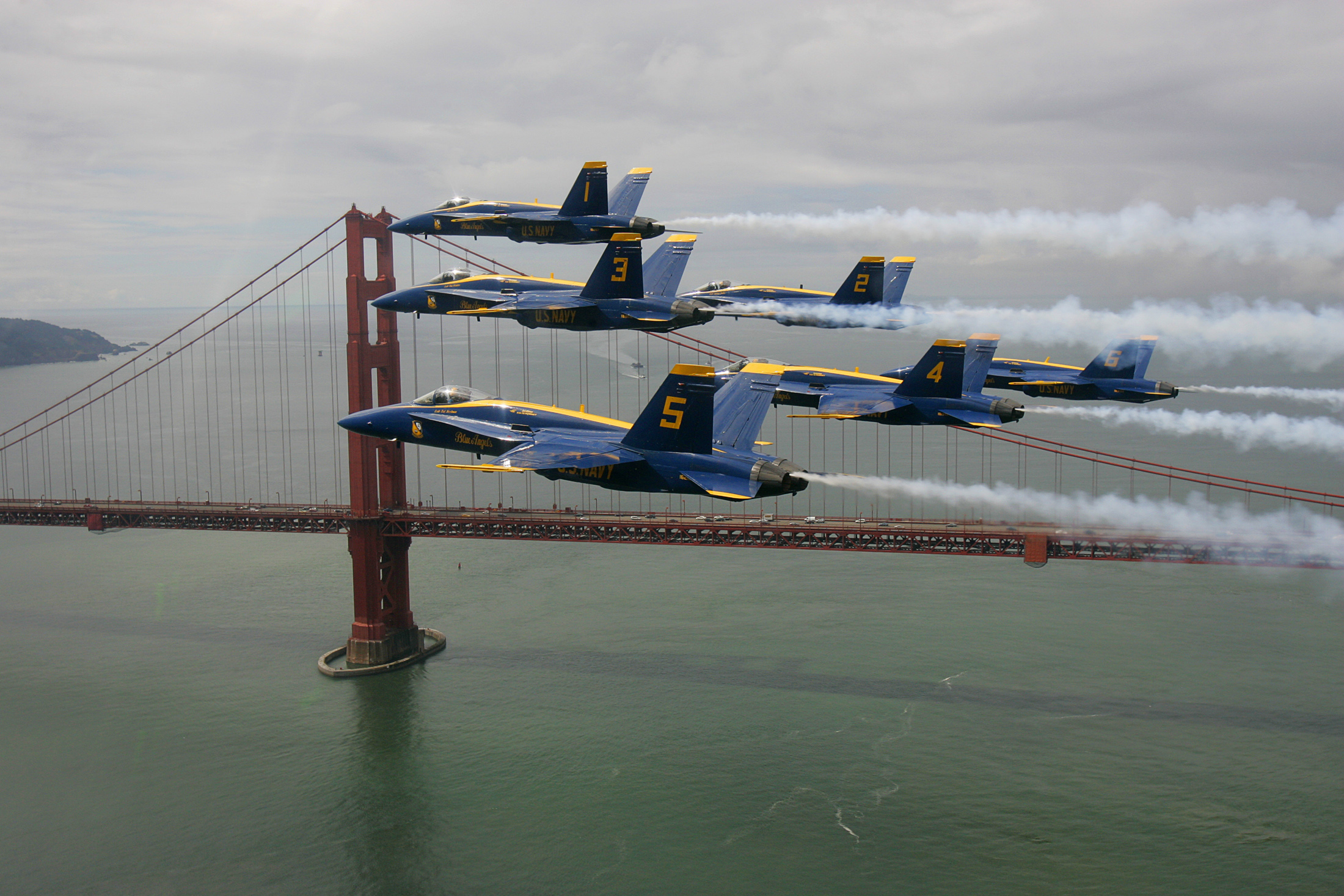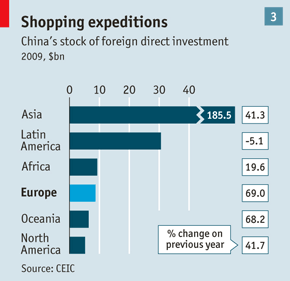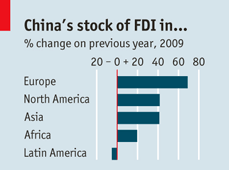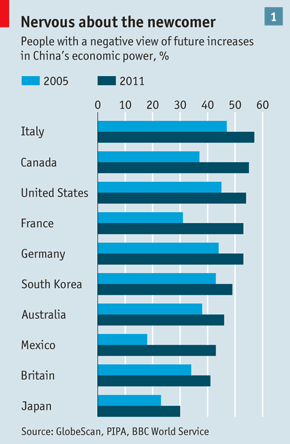
Pic here
Couple of FTs and a WSJ story on China defending itself from critics.
China does the usual oil-for-infrastructure implied swap in Nigeria:
China has agreed to spend up to $23bn (€19bn, £16bn) to build oil refineries and other petroleum infrastructure in Nigeria, potentially strengthening its hand in the country as it seeks to secure 6bn barrels of crude reserves.
Emmanuel Egbogah, special adviser to the president of Nigeria on petroleum matters, told the Financial Times that China State Construction Engineering Corporation signed a memorandum of understanding on Thursday.
In spite of being Africa’s leading energy producer, Nigeria imports almost all its fuel – and pays a subsidy equivalent to its entire annual capital spending – because existing refineries are in disrepair.
Crude but sweet.
The fund, China Africa Development Fund, is supposed to have a bunch of deals in the pipeline and an initial $5B to spend.
China also announces its largest investment into South Africa, "entrenching its position as the resource-rich continent's most important economic and commercial partner. China is now South Africa's single biggest trade partner.
No doubt about that, and it is overwhelmingly to the good.
So naturally China bristles at criticism from outside observers, although it will need to grow ever more sensitive to such criticism growing within Africa.
As J.R. Wu notes in the WSJ piece:
... concerns persist that China is preying on the continent's resources to feed China's economy, while contributing little.
Beijing has put in place some mechanism to deal with issues surrounding its investment and trade on the resource-rich continent, and has asserted that its presence in Africa is increasingly being shaped by nongovernment forces.
Meaning more laws and protections must be put into place, says China's vice commerce minister.
China has set up joint government commissions to work these issues in 43 African countries. Trade now sits around $100B a year, and is expected to skyrocket in coming years.
As a globalization expert and soon-to-be father of both Chinese and African daughters, my fascination with this process knows no bounds. I have, in the past, vastly underestimated the potential for China to positively alter Africa's development trajectory.
 Wednesday, December 19, 2012 at 9:02AM
Wednesday, December 19, 2012 at 9:02AM 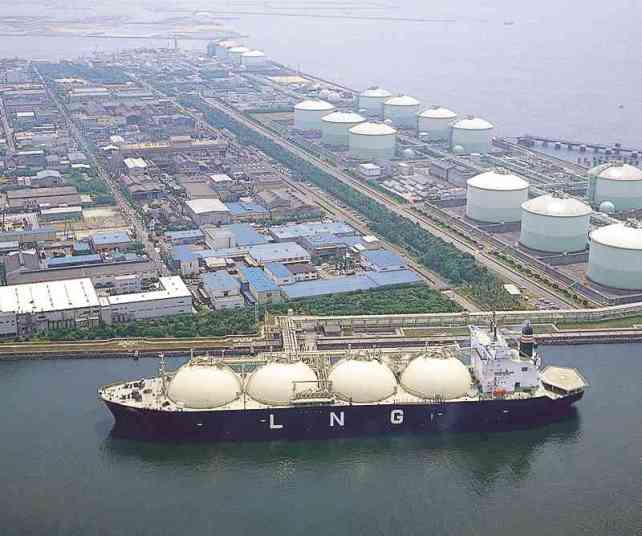
 FDI,
FDI,  US,
US,  energy,
energy,  extractive industries | in
extractive industries | in  Citation Post |
Citation Post |  Email Article |
Email Article |  Permalink |
Permalink |  Print Article
Print Article 








